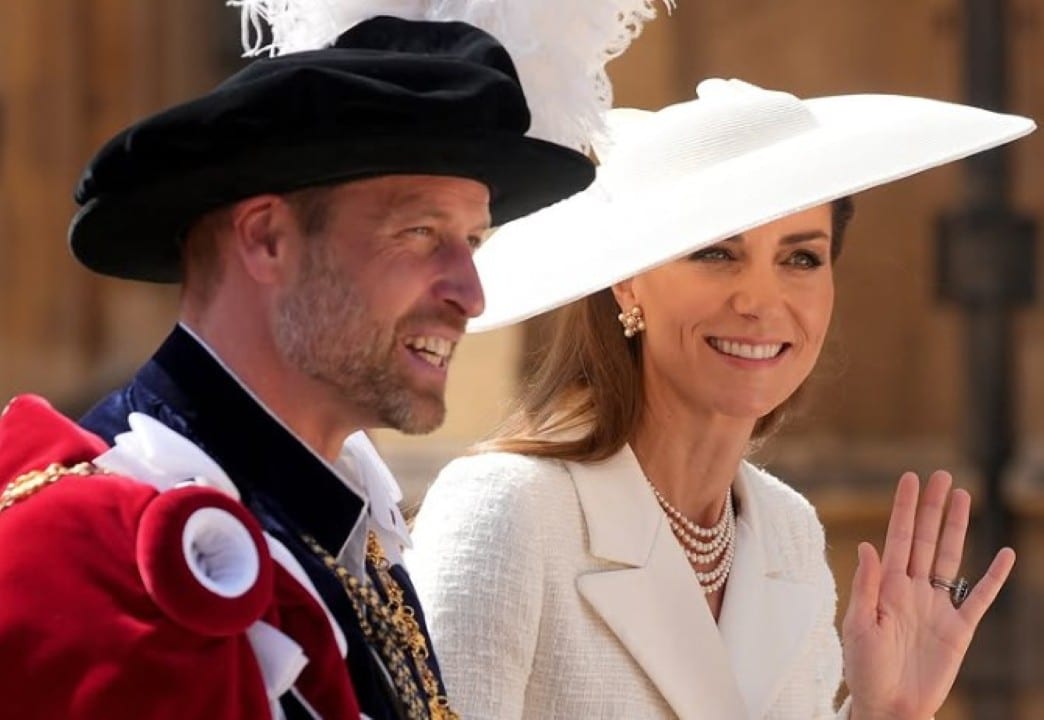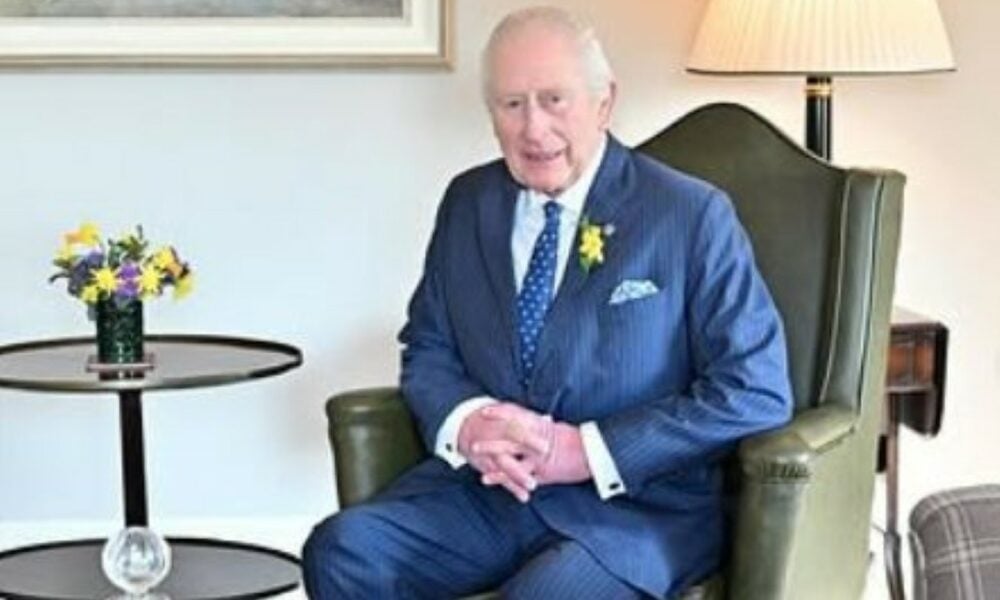Share
Tweet
Share
Share
The British monarchy is navigating a critical moment in 2025, with King Charles III, aged 76, facing a worsening cancer diagnosed in February 2024 after a prostate procedure. The illness, showing no signs of remission, has drastically reduced the monarch’s public engagements from 200 in 2024 to fewer than 50 this year, transferring 80% of royal duties to Prince William and Kate Middleton, both 42. The transition, centered in London, impacts the 56 Commonwealth nations closely monitoring the succession. The urgency reflects the need to maintain the Crown’s stability, as the royal couple prepares to modernize the institution, balancing tradition with contemporary demands. William and Kate’s 75% public approval rating contrasts with Charles’s 50%, signaling confidence in their leadership.
The Palace of Buckingham maintains discretion about the king’s health, but the severity is evident from his reduced public schedule. William has taken the lead in diplomatic events, such as the reopening of Notre-Dame Cathedral in Paris in December 2024, while Kate, also diagnosed with cancer in January 2024, plans a gradual return with 60 engagements in 2025. The monarchy, generating £1.8 billion annually for the British economy, faces criticism for its £100 million cost, but tourism compensates with £500 million.
- Charles’s engagements: down from 200 in 2024 to under 50 in 2025.
- William’s duties: assumed 80% of royal responsibilities, including 10 international trips.
- Kate’s recovery: plans 60 events focused on early childhood and mental health.
- Economic impact: monarchy generates £1.8 billion, with £500 million from tourism.
Intense preparations for a new era
William and Kate have intensified their preparation to lead the monarchy, taking on roles beyond ceremonial duties. The prince manages the Duchy of Cornwall, which generated £24 million in 2024 for social projects. He also held 20 meetings with foreign policy experts in 2025, strengthening his global diplomacy role. His presence at high-profile events, like a 2024 visit to Australia, reinforces the Crown’s relevance in the Commonwealth.
Kate, despite her cancer battle, remains focused on early childhood initiatives, impacting 2 million children last year. Her resilience has boosted her popularity, with 70% of Britons viewing her as vital to the monarchy’s future. The couple raised £50 million in charitable donations in 2024, a 25% increase from 2023, showcasing their ability to rally public support.
- Duchy of Cornwall: £24 million generated in 2024.
- William’s diplomacy: 20 meetings with experts in 2025.
- Kate’s projects: 2 million children benefited in 2024.
- Public approval: 75% for the couple, compared to 50% for Charles.
Charles III’s health forces rapid changes
Charles III’s cancer, identified after a benign prostate procedure, has reshaped the royal family’s dynamics. Hospitalizations, such as in March 2025, highlight the disease’s severity, possibly linked to a pancreatic tumor, per speculation. The lack of official details fuels rumors, but the drop from 25 international trips in 2023 to fewer than 10 in 2024 reflects the king’s limitations. He retains core duties, like weekly meetings with the prime minister, but high-profile events now rely on William.
Queen Camilla has played a stabilizing role, taking on solo engagements, such as a visit to Italy in April 2025. The monarchy faces criticism, with 40% of Britons questioning its £100 million cost, but William and Kate’s popularity counters discontent, keeping the institution relevant.
- Charles’s engagements: from 200 in 2024 to under 50 in 2025.
- King’s hospitalizations: significant in March 2025.
- Camilla’s role: solo events in 2025, including Italy visit.
- Public criticism: 40% question monarchy’s £100 million cost.

Príncipe William e Kate – Foto: Instagram
Commonwealth faces global relevance challenges
The British monarchy, leading 56 Commonwealth nations, faces growing tensions. Barbados broke away in 2021, and six countries, including Jamaica and Australia, plan republicanism debates in 2025. William and Kate, with approval 20% above the royal average, work to strengthen ties with the 2.5 billion-citizen bloc. Their initiatives, like the Earthshot Prize, which benefited 5 million people in 2024, align the monarchy with contemporary issues like sustainability and mental health.
The Crown’s relevance is questioned in a world demanding transparency and efficiency. Yet, the monarchy’s £1.8 billion economic contribution and the couple’s social impact, benefiting 7 million people, bolster its position. William and Kate’s ability to navigate these pressures will shape the institution’s future.
- Commonwealth nations: 14 recognize the monarch as head of state.
- Republican sentiment: six countries debate separation in 2025.
- Social initiatives: 5 million benefited from Earthshot Prize in 2024.
- Economic impact: £1.8 billion generated by monarchy in 2024.
Future of the royal lineage in focus
The succession preparation includes gradually introducing William and Kate’s children to royal duties. Prince George, 11, attended five public events in 2024, such as charity visits, marking the start of his training. Charlotte and Louis, second and third in line, are also beginning symbolic activities. This approach mirrors William’s early responsibilities at age 10, aiming to ensure dynastic continuity amid uncertainty.
The monarchy, which hasn’t faced such an abrupt transition in 70 years, is adapting swiftly. George’s preparation is a long-term investment, while William and Kate solidify immediate leadership. Their popularity, especially among 18- to 34-year-olds with 80% approval, strengthens the image of a monarchy connected to younger generations.
- George’s participation: five public events in 2024.
- Line of succession: George, Charlotte, and Louis as heirs.
- Youth approval: 80% among Britons aged 18-34.
- Long-term strategy: George’s early training for the throne.
Modernization as key to continuity
William and Kate are betting on modernization to keep the monarchy relevant. The prince’s Earthshot Prize promotes environmental causes, while Kate focuses on mental health and early childhood, resonating with younger audiences. In 2024, their initiatives raised £50 million, a 25% increase from the prior year, benefiting 7 million people. The couple’s approval, rising from 65% in 2023 to 75% in 2025, reflects confidence in their leadership.
Charles III’s health crisis has accelerated the transition but also highlighted the couple’s resilience. Kate, despite treatment, completed 15 events in 2024 and plans 60 in 2025, while William managed royal assets and led 10 international trips. This blend of tradition and innovation positions the monarchy to tackle 21st-century challenges.
- Couple’s initiatives: £50 million raised in 2024.
- Kate’s engagements: 60 events planned for 2025.
- William’s trips: 10 international missions in 2025.
- Public approval: 75% in 2025, up from 65% in 2023.

